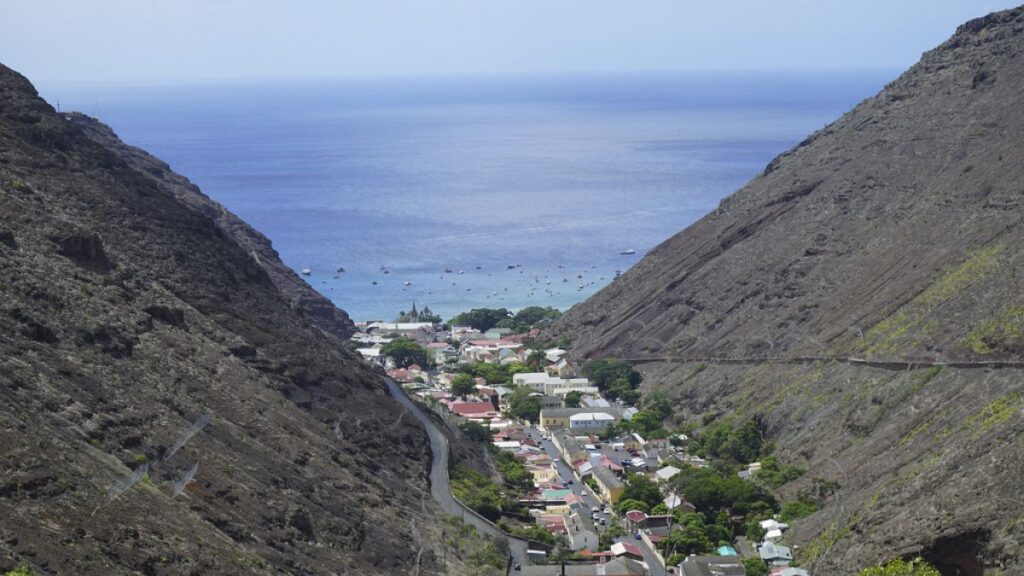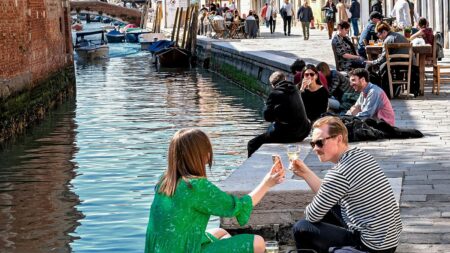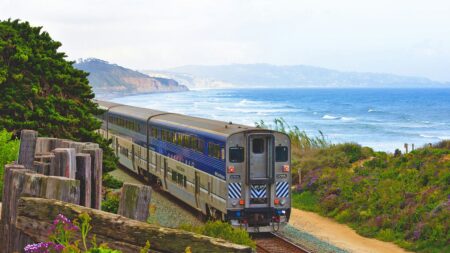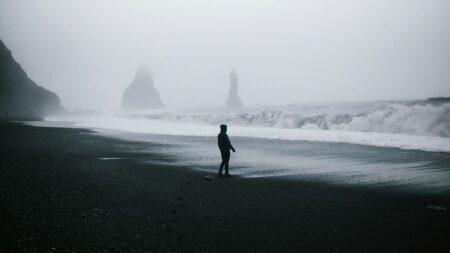Natural wonders. Napoleon’s exile. A remote island in the South Atlantic is now easier to reach
St Helena, a small, craggy island in the South Atlantic Ocean, has never seen many tourists. It’s for a good reason though – it’s one of the most remote inhabited places in the world.
Up until 2017, it took five nights by boat to reach the British overseas territory, located halfway between southern Africa and Brazil.
That’s changed recently, with weekly commercial flights and the recent arrival of high-speed internet.
Local authorities are now hoping to breathe new life into a fledgling tourism industry. In 2023, the island welcomed about 2,100 leisure travellers – and the aim is to attract even more.
The island’s permanent population is tiny, with just over 4,000 residents.
Inhabitants call themselves ‘Saints’ – and they know their isolated island will likely attract a certain kind of visitor.
“It’s people with a real desire to travel and learn rather than, ‘let’s go somewhere to have a bit of sunshine and some nice food,’” Emma Phillips, whose husband, Nigel, is St Helena’s governor, told the AP.
For all its charms, weather on the island can be unpredictable – and, unsurprisingly, supplies can sometimes run low when you’re more than 1,900 kilometres away from the nearest continent.
“You’ve got to be prepared to embrace all of that,” Phillips explained, while extolling the island’s welcoming locals, rich history and natural wonders. “Come with an open mind.”
St Helena offers rich history – and is home to the world’s most iconic tortoise
Many tourists who have previously visited St Helena would have made a beeline for the legendary tortoise Jonathan.
Estimated to be 192 years old, he’s officially the world’s oldest land animal and, thanks to his celebrity status, has even rubbed shoulders with royalty, including the late Queen Elizabeth II, who visited the island in 1947.
“Jonathan is an enigmatic tortoise,” Teeny Lucy, one of his caretakers for over a decade, told the AP “If you come to St Helena, people usually know two things: Jonathan the tortoise and Napoleon Bonaparte.”
Indeed, Jonathan is not the only celebrity to have called the island his home.
From 1815 until his death in 1821, the former French emperor was exiled on St Helena.
Today, it offers tourists the chance to visit his homes and his original burial grounds (although his remains were returned to France in 1840).
The island also boasts a rich collection of British Georgian-era colonial buildings, mostly in its capital city, Jamestown.
There you’ll also find a handful of DVD rental shops – remnants of the island’s pre-high-speed internet days.
An island full of natural wonders for all kinds of nature lovers
If you’re more into nature than technology, you’re in luck.
Roughly one-third of all endemic biodiversity in UK territories can be found within the 75-square-kilometre island.
More than 500 species present there are not seen anywhere else on earth – including around 45 flowering plants and ferns.
Microclimates ranging from cool tropical forests to sunny rolling grasslands and windswept volcanic cliffs can all be experienced within an hour’s drive.
Home to two dozen scenic trails, serious trekkers can opt for a hike to the island’s highest point, Diana’s Peak, which takes you 2,690 feet above sea level and into Britain’s last remaining natural cloud forest.
Casual hikers can stroll along Blue Point Trail for spectacular views of Sandy Bay, Sperry Island and Castle Rock.
For a moderate challenge, try the shaded hike to St Helena’s famed Heart Shaped Waterfall, which only flows in winter and early spring. The best views of the falls can be seen from the main road out of Jamestown.
Other nature-themed bucket list activities include swimming with Chilean devil rays or whale sharks, which are most often spotted from December until March.
There’s also humpback whale watching from June to December. If you visit in January, you’ll likely catch peak nesting season for the wirebird – also known as the St Helena plover – which can only be found on the island.
Plan logistics ahead of your visit for the best possible trip
Although it’s now relatively easier to get to St Helena, it’s still not the most straightforward journey.
South African airline Airlink flies once weekly from Johannesburg, with a mid-week flight sometimes added during the island’s busier summer season, which runs from December to March.
Before being allowed to board the plane, you’ll need proof of medical insurance covering at least £175,000 pounds (about €204,000).
Having just opened up to modern tourism, St Helena currently has no ATMs, credit cards are not widely accepted – and the local bank has limited hours.
Make sure to bring plenty of British pounds for the duration of your stay as well as £20 (about €23) to pay the island’s entry fee.
St Helena Bank’s prepaid Tourist Card app is another option. It can be loaded with debit cards online and is accepted across the island.
Despite the newly installed high speed internet, visitors are recommended to download maps before arrival, as Wi-Fi and mobile data is still limited and expensive.
There are a number of accommodation options, ranging from simple home stays to boutique hotels and taxis are plentiful for excursions.
It is possible to rent stick shift cars, but remember you’ll need to drive on the left-hand side – and St Helena’s narrow roads and blind curves are infamously not for the faint of heart.
Food and drink options on the island are also famous – but for good reason.
Coffee connoisseurs seek out St Helena’s beans, often touted as one of the rarest and most expensive varieties in the world due to their export costs and single-origin status.
Selling online for upwards of €137 for just over 200 grams, extreme isolation has ensured that the coffee plants, which were imported from Yemen in the 18th century, have never been cross-fertilised.
Other local culinary delights include plo – a cross between curry and Spanish paella – fresh fish cakes and sponge cakes with bright pink icing known as coconut fingers.
Read the full article here











